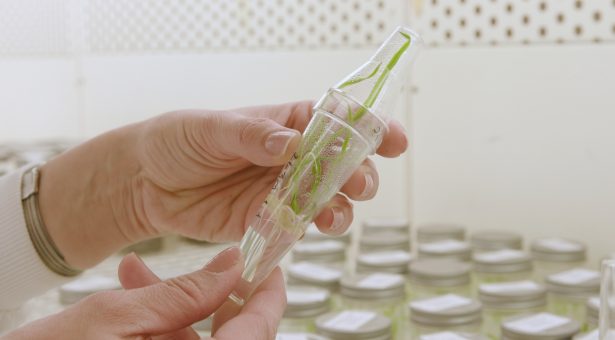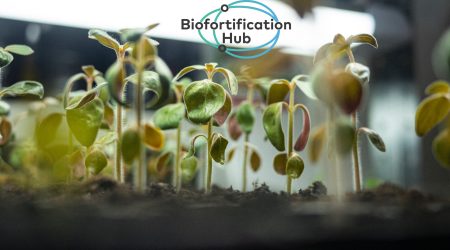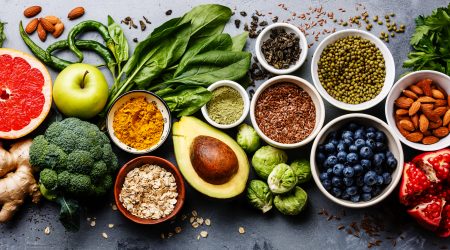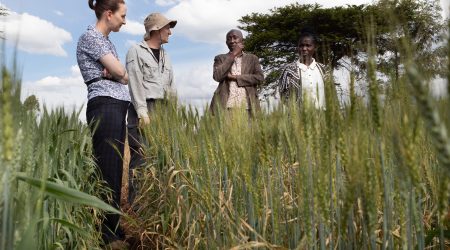Wheat and the holy grail of crop transformation

Wheat is a world-wide staple crop providing 20% of our calories and one quarter of our daily protein.
But despite its high importance and unrivalled range of cultivation, wheat has lagged behind in one important respect: it is the most difficult of all the major crops to transform.
Transformation, or genetic modification, is an important research tool to study regulation of genes that influence traits seen in the field. Adapted from nature, scientists use a soil bacterium called Agrobacterium as a way of transferring genes into the DNA of a host organism.
Three decades on from the introduction of the technology, a freely available and effective wheat transformation system remains a “holy grail” of the research community.
Now researchers have developed an open source, reproducible Agrobacterium-mediated transformation system for the spring wheat cultivar Fielder. Results show that the system yields transformation efficiencies of up to 25% – five times those generally achieved using comparable systems.
The team in Professor Wendy Harwood’s Lab at the John Innes Centre lay out protocols for the method – the product of six years of work – in a new study that appears in Plant Methods journal.
To achieve these efficiencies, they highlight important factors such as donor plant health, stage of the donor material, pre-treatment by centrifugation, vector type and selection cassette.
The system has already been used to introduce genes of interest and for CRISPR/Cas9 based genome editing in wheat.
Dr Sadiye Hayta who led the research and is lead author of the study explains the challenge that faced the team: “Wheat is the holy grail in terms of transformation. With some plants like barley there is more leeway, for example – they are more forgiving in culture. But wheat, as well as being genetically complex, offers a very narrow window of opportunity to transform. It’s the holy grail in terms of transformation.”
The crop transformation team believe that even greater efficiencies lie in store.
More developments are to follow and this new transformation system joins a growing set of resources for the wheat community including the recently published wheat genome and tools such as Wheat Training, Wheat Tilling population and AgRenSeq.
Co-author Mark Smedley adds: “The demand for a robust, reproducible and transferable wheat transformation system is huge. We’ve already started training people using the new protocols and will develop them to include other wheat varieties such as Cadenza, Apogee and the durum wheat Kronos. It’s an exciting time for the John Innes Centre and the entire wheat community.”
The full study: ‘An Efficient and Reproducible Agrobacterium-mediated Transformation Method for Hexaploid Wheat (Triticum aestivum)’ is in the journal Plant Methods.



